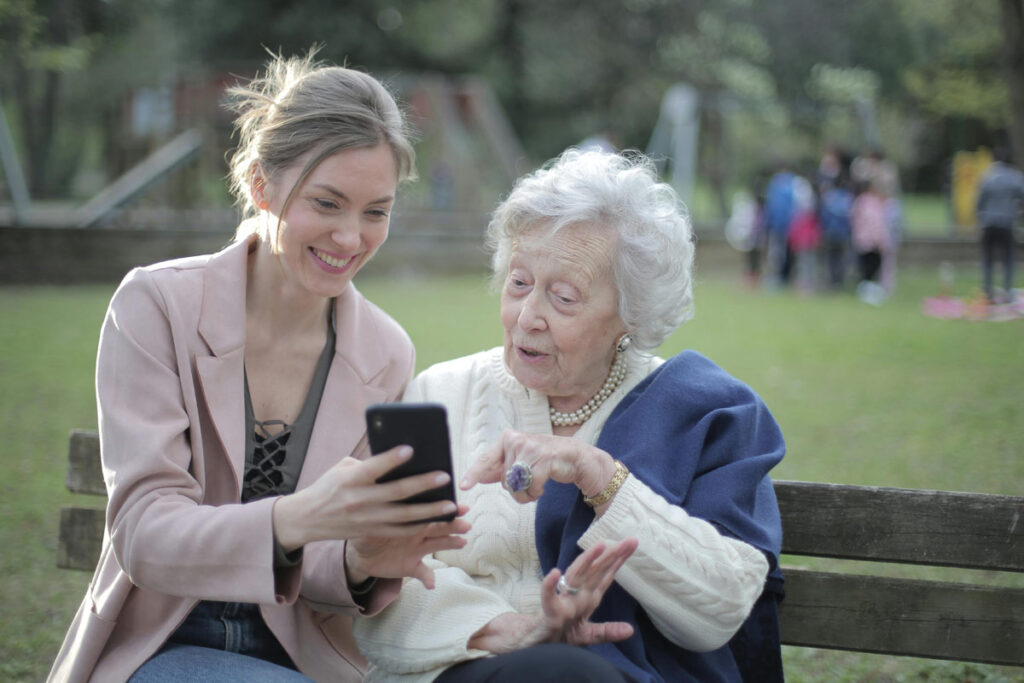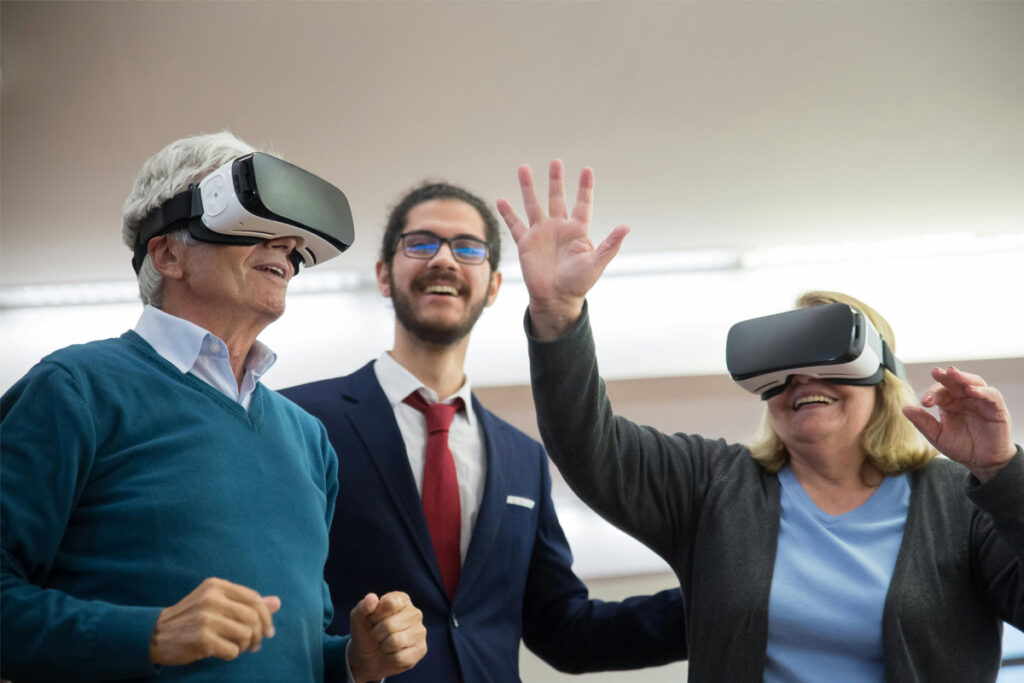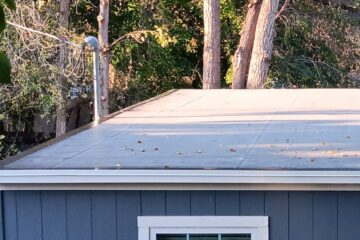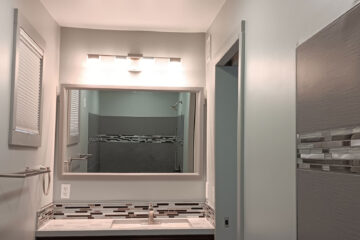Discover how smart technology can help aging adults live safely and independently at home. Learn about medication management, sensor-based tracking, and more with expert tips from Green Gorge Construction.

As we or our loved ones age, staying in the comfort of home becomes a top priority. But sometimes, even familiar spaces can present challenges, especially when mobility or memory start to fade. Luckily, technology can step in to make everyday life safer, more manageable, and, most importantly, more comfortable. At Green Gorge Construction, we work with clients throughout the Columbia River Gorge on incorporating technology solutions that help residents age in place safely. From medication reminders to smart home sensors, there’s a lot that can be done to help keep life flowing smoothly at home.
Safety First: Technology to Help Manage Medications
The Dangers of Forgetting Medications
One of the biggest concerns for aging individuals, especially those with memory issues, is managing medication correctly. I remember how difficult it can be to keep track of multiple pills after a serious accident I had years back. A missed dose or taking the wrong pill at the wrong time can have serious health consequences.
The Solution: Electronic Pill Dispensers
Electronic pill dispensers offer a simple yet effective solution. These devices can be programmed to release the correct dosage at specific times, ensuring that medications aren’t forgotten. The great thing about these dispensers is that they’re easy to use, even for those with memory loss. A caregiver can fill it up once a week or more, and then the machine handles the rest.
Saving Space in Your Home
One challenge I’ve seen is that these dispensers, while helpful, can take up valuable counter space, especially in smaller homes or apartments. That’s why at Green Gorge Construction, we often create custom storage solutions like wall-mounted shelves, clear drawers, or niches to house these devices, keeping counters free for other daily tasks. A small change like this can make a big difference in how easy it is to maintain a functional and tidy kitchen or bathroom.
Wandering: Protecting Loved Ones with Dementia
The Risks of Wandering
As dementia progresses, some people may start wandering off unexpectedly, putting themselves at risk of getting lost or hurt. It’s a scary situation for both the individual and their family, and it can happen at a moment’s notice.
How a Wanderguard System Can Help
A Wanderguard system can provide peace of mind. These systems use GPS technology to track a person’s location when they leave the house or facility. The person wears a bracelet or keychain tag, and if they exit the home unexpectedly, the system alerts caregivers. This way, their movements can be monitored without restricting their independence. At Green Gorge Construction, we’re helping our clients integrate these systems into their home security or home automation setups. It’s all about balancing safety with the freedom to live independently.

Sensor-Based Technology: Keeping Tabs from Afar
Staying Connected Without Intruding
One of the beautiful things about modern technology is how it allows aging residents to maintain their independence while staying connected to their caregivers and family members. Wireless sensors placed around the home or worn as part of a bracelet or necklace can track daily patterns—like how often someone goes to the kitchen or bathroom—and alert caregivers if something seems off. This could be a change in routine, like not getting out of bed in the morning or frequent trips to the bathroom, that could indicate a health issue.
Tracking Activity Without Invading Privacy
I know some people worry that all this tracking might feel invasive, but these systems are designed to be as unobtrusive as possible. For example, a simple motion sensor can tell whether someone has been moving around the house, and door sensors can detect when someone has left the home. It’s not about watching their every move; it’s about making sure they’re safe and sound.
Sleep Monitoring: Rest Easy
Sleep Sensors for a Good Night’s Rest
Getting enough rest is essential, and sleep sensors can help monitor sleep patterns for those who live alone. For example, a sensor under the pillow can detect when someone goes to bed, how long they stay there, and whether they get up during the night. This data helps caregivers ensure that everything is okay, and it can be a lifesaver if a fall or health issue arises overnight.

Supporting Mobility and Independence: Activity Monitoring
Keeping Active
We all know that staying active is key to maintaining health as we age, but it can be tricky to keep track of physical activity. Motion sensors throughout the home can detect whether someone is moving around regularly or whether they’ve been sedentary for a long period. These sensors also help track social engagement, noting how often the person leaves the house or interacts with others.
Tracking Gait and Steps
Wearable tech like wrist trackers or even sensor socks can track steps, distance traveled, and changes in gait, which may indicate potential health issues. These devices can even be equipped with emergency buttons for on-call help—giving both the resident and their family a little extra peace of mind or even give directions on how to get home if lost.
Monitoring Eating Habits
Tracking Eating Patterns
It’s important to make sure aging individuals are eating regularly and staying nourished. Sensors placed on the fridge or pantry doors can track how often someone accesses the kitchen. While they won’t tell you exactly what they ate, these sensors can give a good indication of whether meals are being skipped or frequent snacking is occurring.
Logging Food Intake for Better Nutrition
Some systems even allow residents to proactively log their food intake, making it easier for caregivers to ensure they’re maintaining a balanced diet. It’s a subtle but effective way to encourage healthy eating without being too overbearing.

Medications: Never Miss a Dose
Medication Monitoring Systems
A step up from just a pill dispenser, some systems include door sensors for medicine cabinets and sync with automatic pill dispensers to track whether someone has taken their medication. More advanced systems can send reminders directly to a voice-activated wristband, even if the resident is out of the house.
Personal Health: Wearable Monitors
Keeping Track of Health Metrics
Wearable sensors that monitor health are becoming more advanced by the day. From simple heart rate monitors to sophisticated devices that track blood pressure, sleep patterns, and hydration, these tools are invaluable in maintaining health without requiring frequent doctor visits.
Home Safety: Avoiding Accidents
Smart Sensors to Monitor the Home
Unattended stoves, running faucets, and forgotten appliances can become major hazards. Smart sensors can monitor these appliances and automatically shut them off if they detect something amiss. For example, a stove sensor can turn off the burner if it’s been left on too long, or a water leak sensor can detect a potential flood in the bathroom or laundry room.
Maintaining a Safe Temperature
Temperature sensors can ensure that the home isn’t too hot or too cold, or that faucets don’t get too hot for sensitive skin. This kind of oversight is especially important when memory loss becomes an issue.

Artificial Intelligence Pets: Companionship Without the Hassle
The Benefits of Pets—Without the Work
Many aging residents miss the companionship of pets but may no longer have the physical ability to care for them. That’s where AI pets come in. These lifelike robots can mimic the behavior of real pets without requiring food, water, or walks. They can provide emotional comfort, reduce loneliness, and even help seniors stay engaged—without the hassle of real-life pet care. These products may sound like science fiction right now but as technology evolves and the adoption of artificial intelligence grows we will see this becoming more commonplace.
At Green Gorge Construction, we’re seeing how these technologies can make a huge difference in our clients’ lives. By implementing these smart solutions, we help aging residents in the Columbia River Gorge stay safe, independent, and comfortable in their own homes. If you or a loved one are looking to make your home more accommodating as you age, explore how we can make your home a haven for comfortable living!
Why Invest in Aging-in-Place Technology with Green Gorge Construction?
Incorporating aging-in-place technology into your home is about more than just convenience—it’s about creating a safe, comfortable environment where you or your loved ones can thrive. At Green Gorge Construction, we specialize in integrating smart home solutions that cater to the unique needs of aging adults. Whether it’s motion sensors for fall prevention, medication reminders for better health management, or home automation systems for easier daily living, the benefits are endless. You gain peace of mind knowing that your home is equipped with the latest safety features, while also enhancing the quality of life for those living there.
Green Gorge Construction understands the importance of staying independent without sacrificing safety. We work closely with you to customize solutions that fit your lifestyle and home design, ensuring that every upgrade blends seamlessly with your daily routine. Plus, these features can increase the value of your home, making it a worthwhile investment for the future.
Ready to explore how aging-in-place technology can transform your home? Contact Green Gorge Construction today, and let’s build a safer, smarter space for comfortable living!




0 Comments